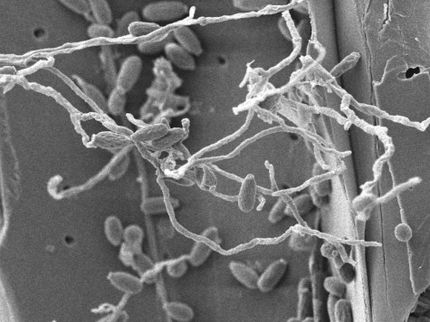Louisiana Tech researchers using nanotechnology in biofuel process to save money, environment
Advertisement
Dr. James Palmer, associate professor of chemical engineering at Louisiana Tech University, is collaborating with fellow professors Dr. Yuri Lvov, Dr. Dale Snow, and Dr. Hisham Hegab to capitalize on the environmental and financial benefits of "biofuels" by using nanotechnology to further improve the cellulosic ethanol processes.
Biofuels will play an important part in sustainable fuel and energy production solutions for the future. The country's appetite for fuel, however, cannot be satisfied with traditional crops such as sugar cane or corn alone. Emerging technologies are allowing cellulosic biomass (wood, grass, stalks, etc.) to also be converted into ethanol. Cellulosic ethanol does not compete with food production and has the potential to decrease greenhouse gas (GHG) emissions by 86 percent over that of today's fossil fuels. Current techniques for corn ethanol only reduce greenhouse gases by 19 percent.
The nanotechnology processes developed at Louisiana Tech University can immobilize the expensive enzymes used to convert cellulose to sugars, allowing them to be reused several times over and, thus significantly reducing the overall cost of the process.
Savings estimates range from approximately $32 million for each cellulosic ethanol plant to a total of $7.5 billion if a federally-established goal of 16 billion gallons of cellulosic ethanol is achieved. This process can easily be applied in large-scale commercial environments and can immobilize a wide variety or mixture of enzymes for production.
Most read news
Topics
Organizations
Other news from the department science

Get the life science industry in your inbox
By submitting this form you agree that LUMITOS AG will send you the newsletter(s) selected above by email. Your data will not be passed on to third parties. Your data will be stored and processed in accordance with our data protection regulations. LUMITOS may contact you by email for the purpose of advertising or market and opinion surveys. You can revoke your consent at any time without giving reasons to LUMITOS AG, Ernst-Augustin-Str. 2, 12489 Berlin, Germany or by e-mail at revoke@lumitos.com with effect for the future. In addition, each email contains a link to unsubscribe from the corresponding newsletter.






















































